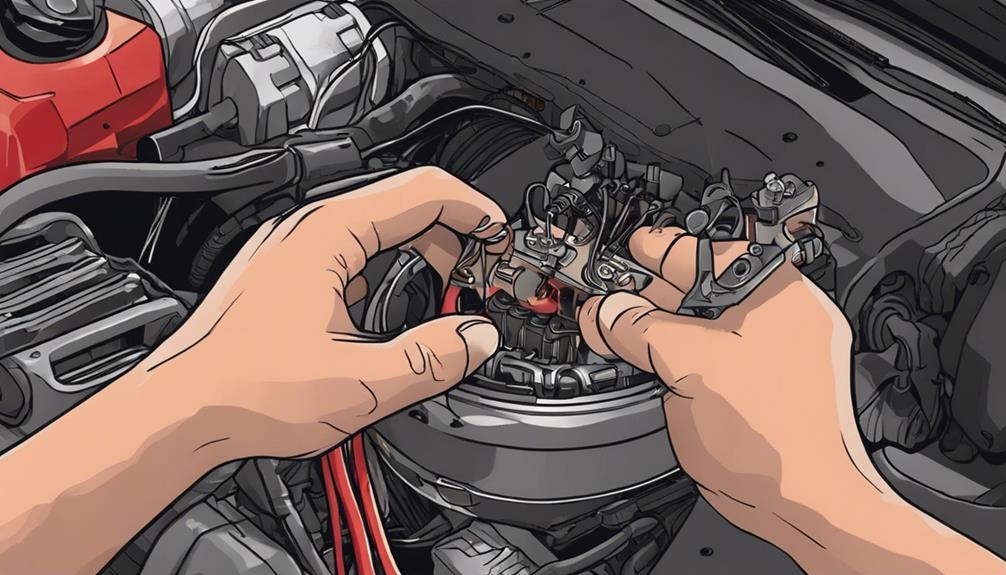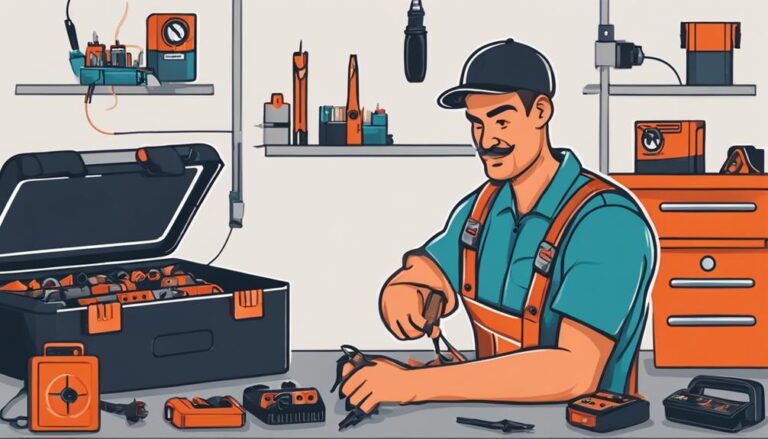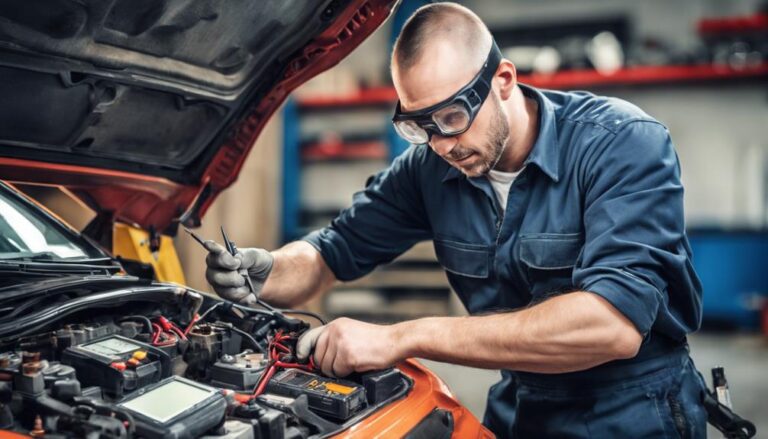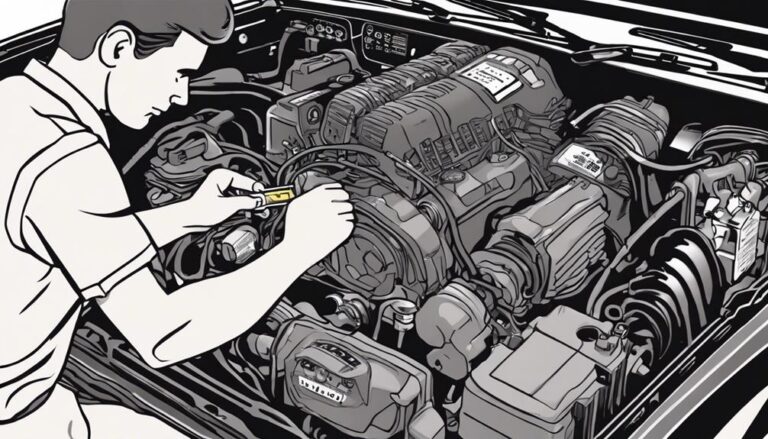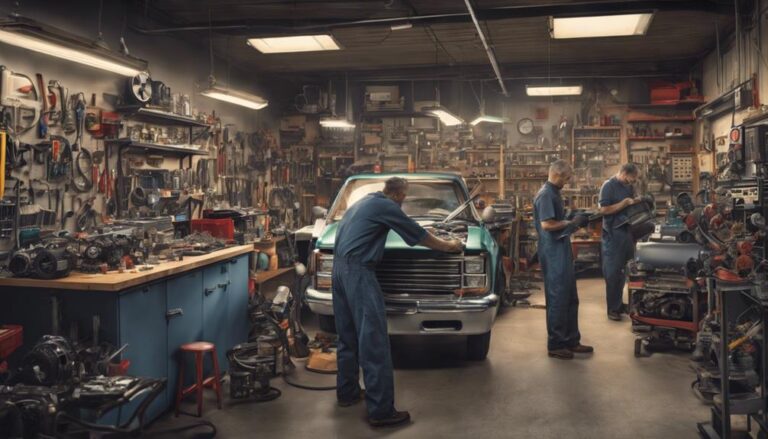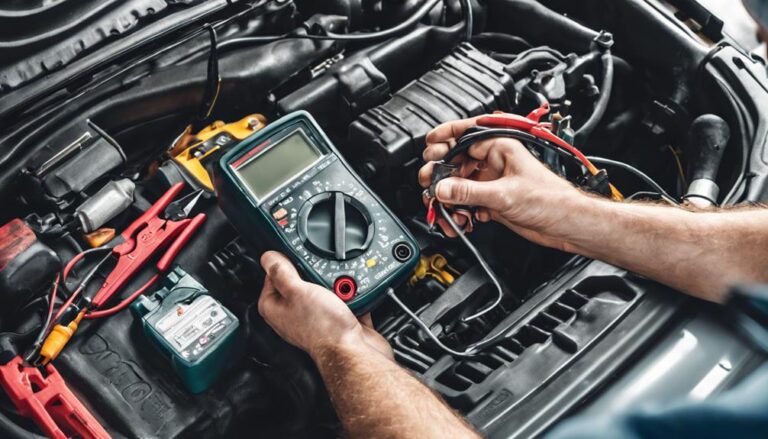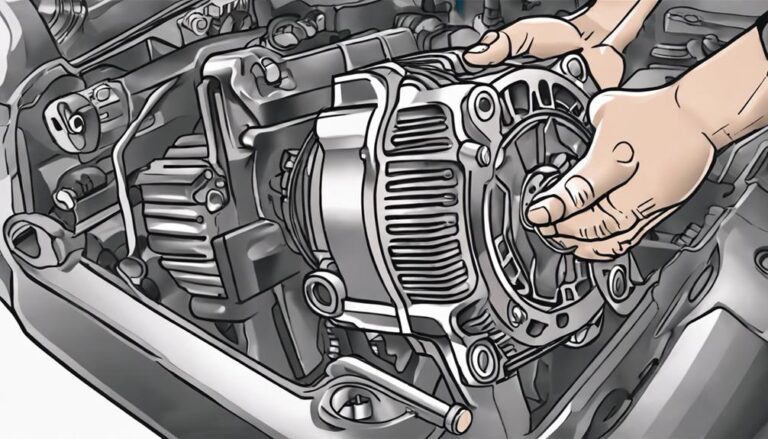Top Fixes for Alternator and Starter Problems
If you've ever wondered about the common reasons for car breakdowns, consider this: alternator issues account for around 8% of vehicle failures.
Feeling stumped when faced with alternator or starter problems? Stay tuned as we unravel the top fixes for these vital components in your vehicle's electrical system.
Key Takeaways
- Early diagnosis crucial for alternator issues to prevent battery failure and electrical problems.
- Verify battery condition and inspect starter components for efficient starting function.
- Address electrical malfunctions promptly by checking fuses and sensors.
- Schedule routine maintenance checks to prevent alternator and starter failures.
Identifying Common Alternator Issues
To effectively identify common alternator issues in your car, scrutinize the signs like dimming lights, a dead battery, serpentine belt squealing, and the battery light being on. These indicators often point towards problems with your alternator, a essential component of your vehicle's electrical system.
When the alternator fails, it can result in a dead battery as it fails to recharge it properly. This can lead to further issues within the electrical system of your car, affecting components like the starter and other important functions.
Understanding these signs can help you diagnose potential alternator problems early on, preventing further damage to your vehicle. If you notice these symptoms, it's advisable to consult a mechanic promptly for a proper diagnosis and repair.
Timely maintenance and replacement of alternators are important to avoid costly repairs and ensure the reliability of your car on the road. Remember, paying attention to these signs can save you from being stranded with a dead battery caused by alternator issues.
Troubleshooting Alternator Problems
If you're experiencing dimming lights and a dead battery, the next step is to troubleshoot potential alternator problems efficiently. Follow these steps to diagnose alternator issues:
- Check Electrical Power: Start by ensuring the alternator is providing enough power to charge the battery and run the electrical components properly.
- Use a Digital Volt Ohmmeter: Measure the alternator's voltage output with a digital volt ohmmeter to determine if it's within the acceptable range.
- Inspect the Charging System: Examine the charging system components, including the belts and connections, to rule out any issues affecting the alternator's performance.
Fixing Starter Motor Failures
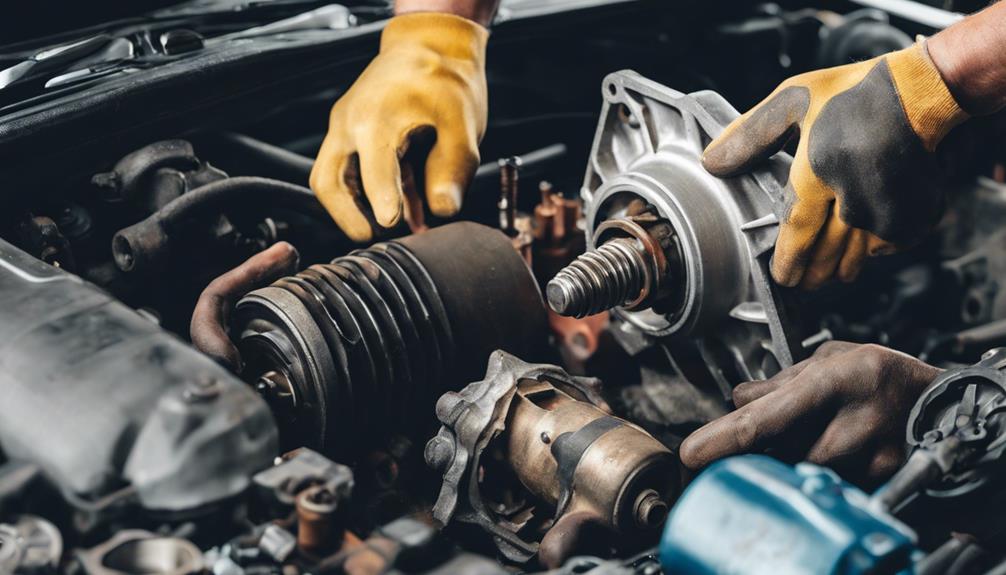
Addressing starter motor failures requires a methodical approach to identify and rectify underlying issues efficiently. When your vehicle exhibits symptoms like slow cranking, clicking sounds, or a single loud click upon starting, the starter motor may be at fault.
Begin troubleshooting by verifying the battery is in good condition; sometimes, a failing battery can mimic starter issues. If the battery checks out, it's time to inspect the starter and its components. Look for worn-out brushes, a faulty solenoid, or loose electrical connections.
In many cases, a professional technician should handle starter motor repairs due to the intricacies involved. Repairing a starter often involves removal, component replacement, and precise reinstallation to guarantee proper torque application.
Regular maintenance and inspections can help prevent sudden failures, ensuring reliable engine startup. Remember, when in doubt about the starter or alternator, seeking professional assistance is the best course of action to accurately diagnose and address the problem.
Addressing Electrical System Malfunctions
Begin diagnosing electrical system malfunctions by inspecting common culprits like blown fuses, wiring harness issues, and faulty sensors which can impact the performance of the alternator and starter.
- Work Together: The alternator and starter work jointly to guarantee your car starts and runs smoothly. Any issues with the electrical system can impact their performance.
- Help Prevent: Proper diagnosis of electrical system problems can help avert further damage to the alternator and starter, saving you time and money in the long run.
- Fail Due: If the electrical system malfunctions, your car may not start, or you may experience problems like the inability to charge the battery properly.
When your car won't start, it's crucial to take into account the electrical system as a potential source of the issue. By addressing these electrical malfunctions promptly and with proper diagnosis, you can make sure that your alternator and starter are in good working condition, keeping your vehicle running smoothly.
Preventive Maintenance for Starters and Alternators
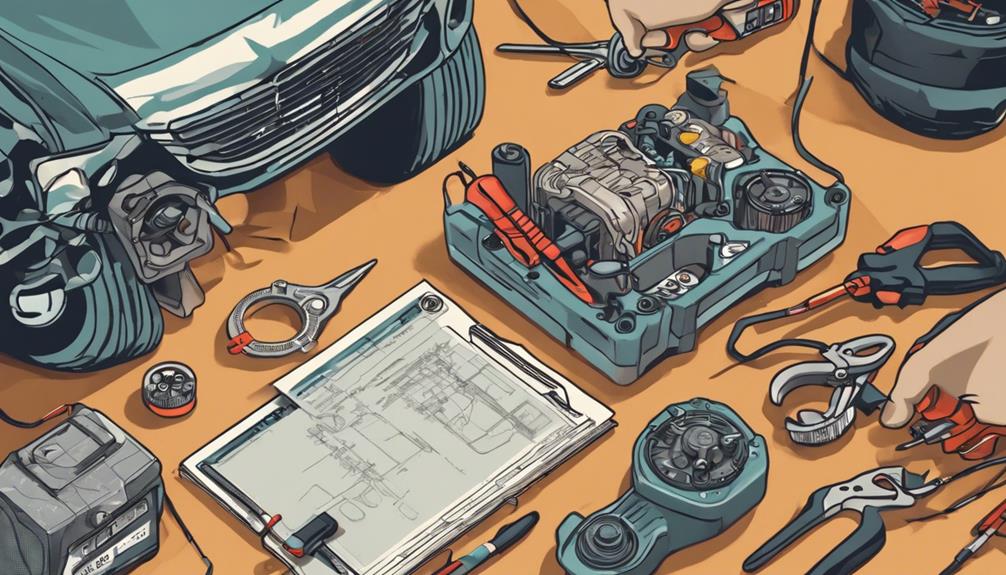
To guarantee starters and alternators remain in peak condition and have a long lifespan, regular preventive maintenance is essential. Begin by making sure your vehicle's electrical system is in good shape. Check that car batteries are fully charged to provide adequate power for starting the engine.
Utilize diagnostic equipment to assess the health of your starters and alternators. Technicians rely on these tools to identify any potential issues early on. By comparing diagnostic results to service limits, they can determine if any repairs or rebuilds are necessary. Addressing any starter or alternator problems promptly can prevent further damage and ensure your vehicle keeps running smoothly.
Consider scheduling routine maintenance checks to catch any issues before they escalate. Remember, preventive maintenance is key to avoiding costly repairs and breakdowns down the road. Keep your starters and alternators in top condition for reliable vehicle operation.
Frequently Asked Questions
How Much Does It Cost to Fix an Alternator or Starter?
Fixing an alternator or starter can range from $50 to $800. Common issues include worn-out components. Consider DIY solutions for minor repairs or opt for professional services for complex problems. Warranty options and preventative maintenance can help.
Can Starter and Alternator Go Bad at the Same Time?
If you experience slow cranking or dimming lights, it's possible for both the starter and alternator to fail simultaneously due to shared electrical connections. Proper diagnostic testing is essential to identify issues accurately and explore replacement options.
Can a Bad Alternator Be Fixed?
If you're facing a bad alternator, consider DIY solutions like replacing the voltage regulator or brushes. Troubleshooting steps and testing methods can help pinpoint common issues. For complex problems, seeking professional help is wise for reliable alternator repair.
What Could Cause a Car Not to Start if Battery Starter and Alternator Are Good?
If your car won't start despite a good battery, starter, and alternator, check for issues like a faulty ignition switch, clogged fuel pump, bad spark plugs, malfunctioning starter relay, wiring problems, faulty engine sensor, or corroded battery terminals.
Conclusion
In summary, addressing alternator and starter problems is essential for peak vehicle performance. Just like a skilled surgeon fixes a delicate organ, skilled technicians diagnose and repair these important components with precision.
Regular maintenance and timely fixes are key to ensuring your vehicle runs smoothly and efficiently. Don't wait until it's too late – act now to avoid costly repairs down the road.

